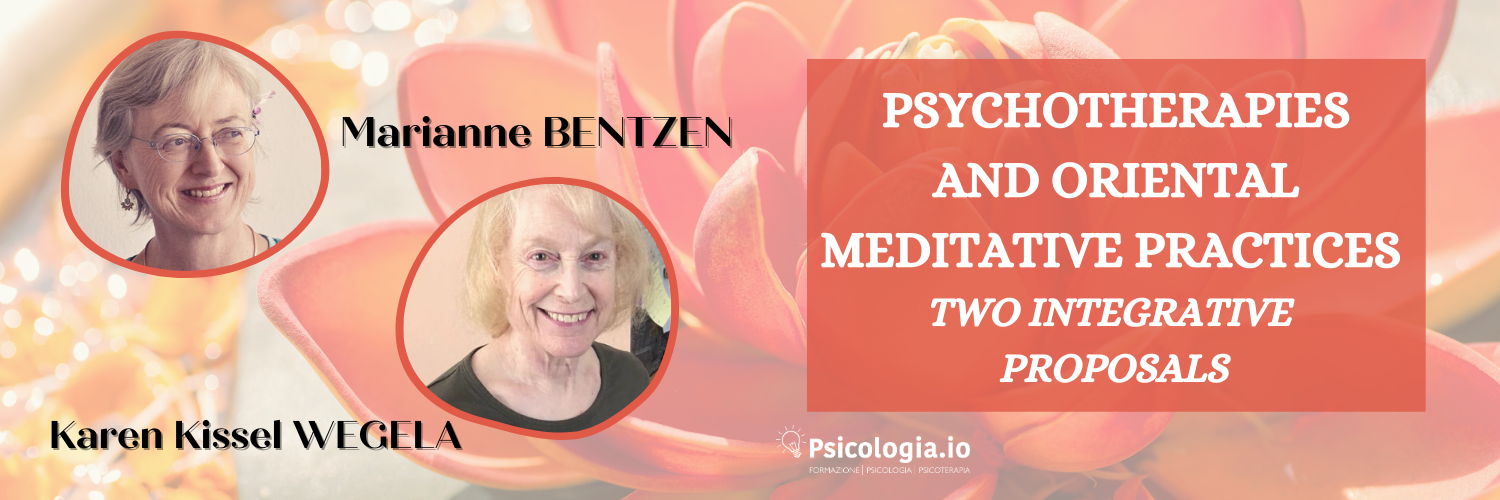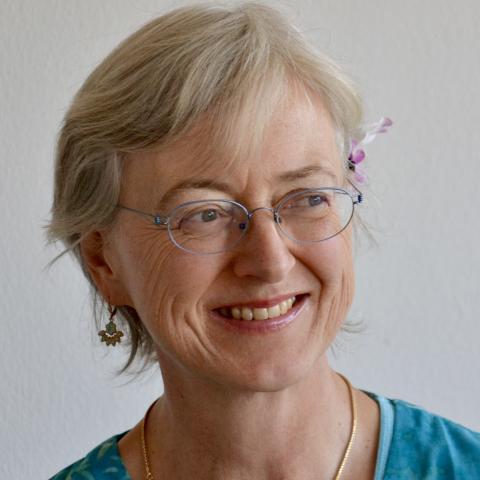
Psychotherapies and oriental meditative practices: two proposals for integration
In an age of concreteness and worries, the spiritual dimension present in each of us is often neglected, as well as the important resources that it can offer within a therapeutic path.
Reconnecting with this dimension can activate thoughts, emotions and new awareness that can play an important role both during therapy and in daily life.
The training offers a path of 16 hours of purely experiential nature, aimed at stimulating not only the reflection on the theme, but also the practice on themselves.
Learning objectives
- How do we practice meditative presence if we struggle with inner spaces?
- How do we uncover the spiritual or vital elements that may be hidden in the traumatic experience?
- How can we more often access the doorway to archetypal and spiritual levels of meaning in our daily lives?
- Participants will be able to practice mindfulness-awareness meditation as a method of self-exploration
- Participants will be able to define Maitri and know how to use Métta practice to cultivate it
- Participants will be able to practice tonglen practice as a method of working with personal obstacles that may arise in working with patients in therapy
- Participants will know how to use the "body-speech-mind" group supervision practice as a method to develop empathy and clarity in their work with clients
- Participants will be able to define and know how to use the practice of creating a mandala as a method to help clients understand their strengths and challenges
- Participants will be able to describe the hidden magic within confused emotions and be able to begin to recognize it in themselves and in clients
WHAT'S INCLUDED
- 2 Speakers from 2 countries
-
All webinars recordings available for 12 months
-
All the slides of the webinars available in the course area
-
Certificate of participation can be downloaded directly from the site
Although traumatic events and life experiences most often leave us with a painful and even devastating personal aftermath, it can also be a hidden gift, a doorway to deeper and wider levels of consciousness that are only now beginning to be explored by science. Some people who have survived severe and ongoing trauma report that in their darkest hours they have found the deepest resource; the unshakable feeling of great meaning, or a sense of spirit, or of God. This feeling often stays with them, as a sense of faith, gratitude, or as a constant reminder of the preciousness of life. For this reason, trauma can sometimes be experienced as a doorway to spirit, or to the discovery of an indestructible part of our being. Despite their differences, spiritual openings and traumatic responses have much in common at the brain level. At the deepest level of brain organization, in the autonomic nervous system, trauma often activates the highest levels of arousal and the deepest stillness at the same time. In formal systems of spiritual formation, the same spontaneous emergence of arousal and immobility in the organism heralds profound experiences of spiritual openness. There are other similarities between the brain function of traumatic and spiritual states. In this workshop we will explore the theory and research that bridge the gap between trauma and spiritual openings and explore some of the methods that can allow deep feelings of connection to emerge from the darkest experiences. We will explore therapeutic methods and spiritual practices and reflect on two questions: - How can we uncover the spiritual or life-enhancing elements that may be hidden in traumatic experience? - How can we more often access the doorway to archetypal and spiritual levels of meaning in our daily lives? The training format will be in a meeting format, allowing for alternating practical exercises, theoretical presentations and discussion.
Drawing on the rich tradition of Buddhist psychological teachings and practices, Contemplative Psychotherapy is a resource that can enhance the therapeutic work of practitioners from diverse backgrounds. Contemplative Psychotherapy, as pioneered at Naropa University in Boulder, Colorado in the mid-1970s, is based primarily on the teachings of Tibetan Buddhism. Within this tradition, there are three main Yanas or vehicles of teachings and practices, and we will compare the path of these three approaches in this seminar series. The first vehicle emphasizes our personal development of mindfulness, awareness, and loving-kindness toward our own experience as the basis of our work with others, thus, our first seminar is titled "Beginning with Self."
The second seminar is "The Path of Compassionate Action," following the Mahayana teachings and the development of bodhicitta or an "awakened heart."
The final seminar reflects the teachings of the third Ana, Vajrayana or the vehicle of indestructible wakefulness. In this seminar, "Indestructible Brilliant Mental Health," we will explore the teachings and practices that help us support this active awareness with regard to our patients in therapy.


- Recordings available for 12 months from purchase
- All materials are downloadable